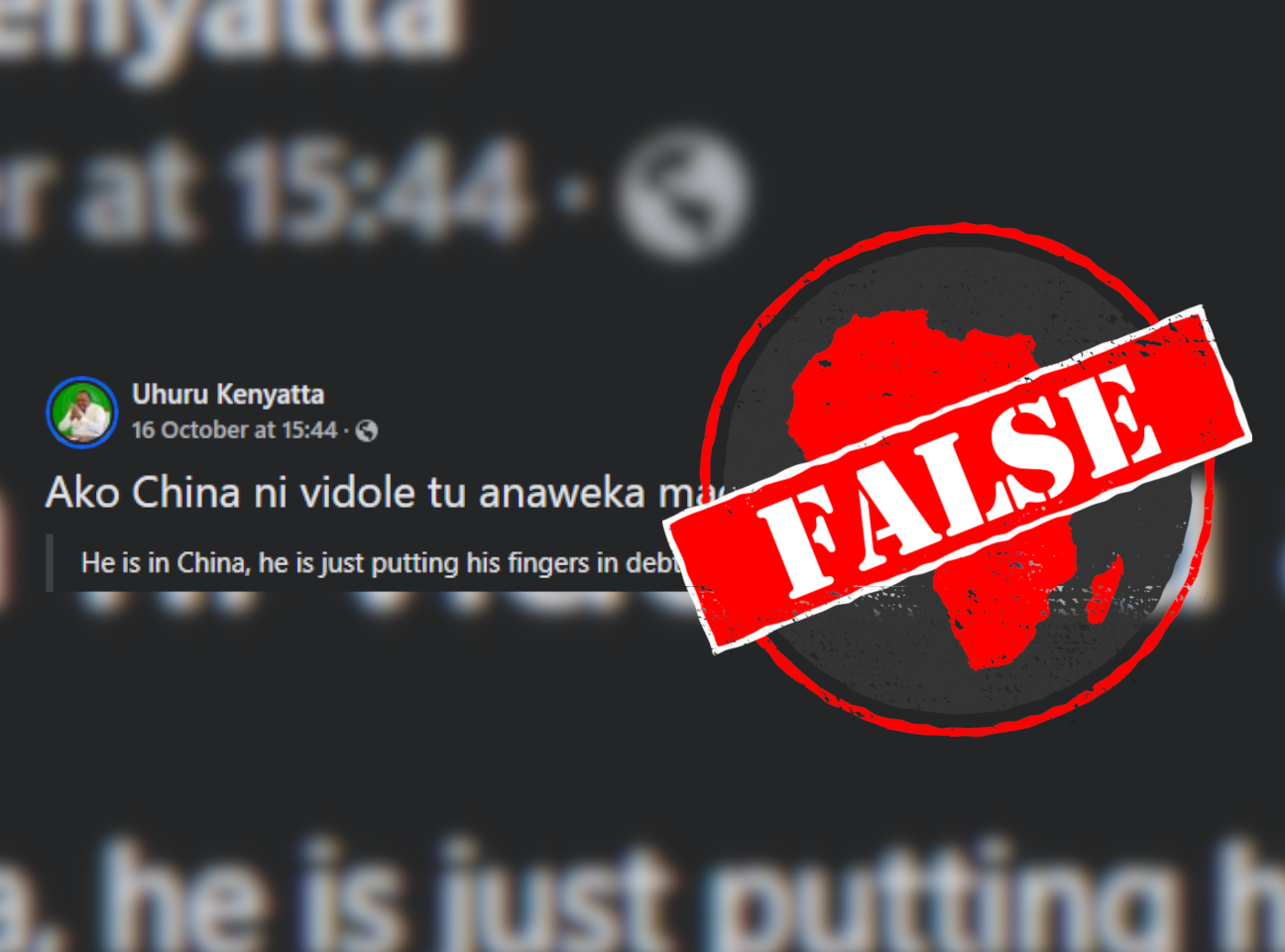IN SHORT: This Facebook page uses former Kenyan president Uhuru Kenyatta’s name and photos to criticise the country’s current president. But beware, it is an imposter and unconnected to Kenyatta.
The Facebook page Uhuru Kenyatta often publishes posts critical of the Kenyan president William Ruto.
The page uses the name and photos of the country’s former president, Uhuru Kenyatta, who left office in September 2022 after serving two terms.
One of the page’s posts, dated 16 October 2023, reads: “Ako China ni vidole tu anaweka madeni.”
This translates from Swahili as: “He is in China signing off on loans.” The post was published just days after Ruto travelled to China on an official visit.
Kenya is struggling to repay foreign debt and the idea of borrowing more is unwelcome to many.
Ruto worked closely with Kenyatta as Kenya’s deputy president from 2013 to 2022. Kenyatta, however, backed the opposition leader Raila Odinga for president in the August 2022 election. The election was eventually won by Ruto.
The page posts frequently, attracting comments and reposts from users.
But is the page legit? We checked.

Fake Facebook page
Kenyatta suspended his social media accounts in 2019. At the time, his chief of staff Nzioka Waita cited “unauthorised access” to the president’s social media accounts as the reason.
He, however, set up new social media accounts after the end of his presidency. His genuine Facebook page is Office of the 4th President of the Republic of Kenya and on X, formerly Twitter, his account is Office of the 4th President of Kenya. Both were established in November 2022.
Kenyatta uses these channels to update his supporters about his international engagements. Posts across the two are similar and consistent.
The suspicious Facebook page Uhuru Kenyatta, created on 13 October 2023, is clearly an imposter and its posts should be ignored.
Republish our content for free
For publishers: what to do if your post is rated false
A fact-checker has rated your Facebook or Instagram post as “false”, “altered”, “partly false” or “missing context”. This could have serious consequences. What do you do?
Click on our guide for the steps you should follow.
Publishers guideAfrica Check teams up with Facebook
Africa Check is a partner in Meta's third-party fact-checking programme to help stop the spread of false information on social media.
The content we rate as “false” will be downgraded on Facebook and Instagram. This means fewer people will see it.
You can also help identify false information on Facebook. This guide explains how.




Add new comment